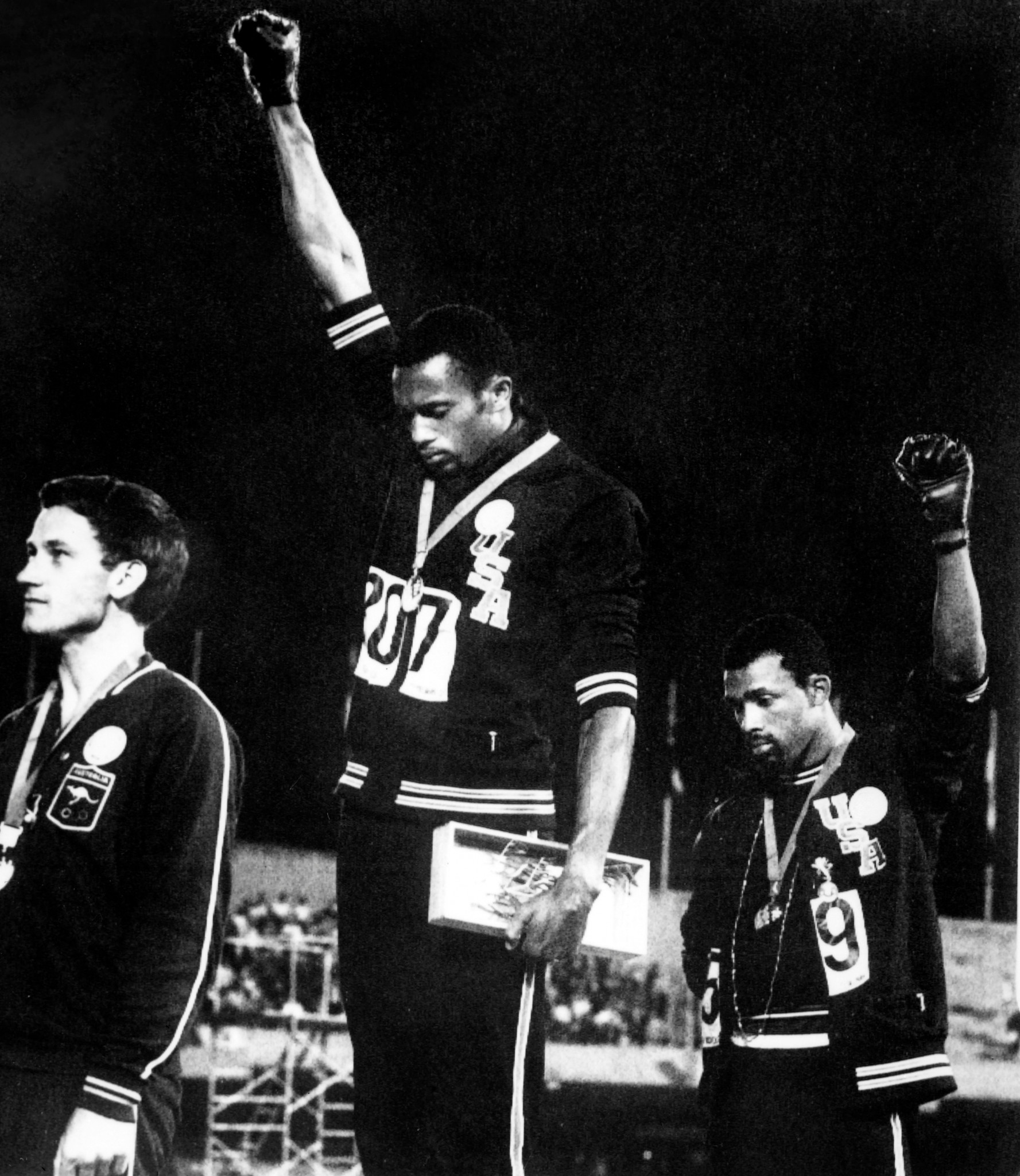World Athletics President Sebastian Coe underlined his support for athletes taking a knee at next year's postponed Olympic Games by giving the annual President’s Award to the trio who famously protested on the podium at the 1968 Mexico Olympics - Tommie Smith, Peter Norman and John Carlos.
"We created the President's Award in 2016 to recognise and honour exceptional service to athletics," said Coe during today’s World Athletics Awards, which were held virtually for the first time because of the coronavirus pandemic.
"The bravery, dignity and morality of these three men continue to inspire athletes from all sports 50 years on."
During the medal ceremony for the men’s 200 metres, gold medallist Smith and his fellow black American, Carlos, stood with heads bowed and a single black-gloved fist in the air to draw attention to the racism and inequality they saw back home and around the world.
They were supported by Australia’s silver medallist Norman, who died in 2006.
Norman stood with them wearing a badge on the podium in support of their cause, the Olympic Project for Human Rights, and is also credited with suggested Smith Carlos wear one glove each after Carlos forgot his pair.
It became the quintessential image of sporting protest, and on of the most famous in the history of the Olympics.
Athlete protests have been a key topic in recent months, with Rule 50 of the Olympic Charter coming under increasing scrutiny.
The second clause of the rule states: ""No kind of demonstration or political, religious or racial propaganda is permitted in any Olympic sites, venues or other areas."
Coe has previously said he would be supportive of athletes who wish to take the knee at the Games, an image that has become associated with the Black Lives Matter movement, although the International Olympic Committee (IOC) President Thomas Bach expressed a differing view in October, warning that the Olympics should not become "a marketplace of demonstrations".
Speaking today, Coe recalled that award ceremony on October 16 1968.
"The bowed respectfully as an Olympic official placed their medals around their necks, but when the anthem began to play they lowered their heads to protest the hypocrisy of a country that proclaimed to uphold freedom and human rights around the world but neglected to protect the rights of their black citizens…
"The moment of silent protest was caught on camera in a photograph we all know so well… it showed the solidarity of these three men - two black and one white - against injustice.
"Or, in John Carlos’ own words, 'in support of all the working-class people, black and white, in Harlem who had to struggle and work with their hands all day.'
"The image of Smith and Carlos raising fists has become seared in history as an incendiary act of protest by athletes.
"But sadly, their cause and what they so bravely stood for has not been consigned to the history books.
"As demonstrations around the world this year have shown, there is much more that needs to be done.
"I hope that the uncompromising attitude of these three athletes continues to be an inspiration to all of us who refuse to accept racism even while standing, or kneeling, in silence."
Speaking virtually from Atlanta today, Smith commented: "We had been put in that position by society, and the need to withstand pressures of a system that didn’t recognise everyone equal.
"And we did it from an athletic platform of courage and excitement and a need to provide an avenue for those who didn’t have one to go down this road headed towards that intersection that you have to choose.
"John and I had reached that intersection at that particular time and we had to have a direction to go.
"And we picked that direction because it was a needed direction not only by the athletes – and we were young athletes at that time – to do something that everyone would see, understand – I don’t know about the understanding, but they would see it and the judgement would be up to them.
"It was time, time for the athletes to stand up and fight."
After Coe had joined the live link, Smith thanked him for the award and for "giving the athletes, and especially the younger athletes, the pride in being themselves, the pride in having an opinion about things.
"Not that it’s necessarily going to go their way, but at least you give them a chance."
The IOC Athletes' Commission has been in consultation with athletes from across the world over the issue of Rule 50.
A series of athlete groups have outlined their views on Rule 50, with a proposal expected to be made to the IOC Executive Board later this month.
The Commission then hopes to finalise a Rule 50 recommendation in the first quarter of next year.
Carlos, along with the United States Olympic and Paralympic Committee Athletes' Advisory Council, has called for the abolition of Rule 50.

